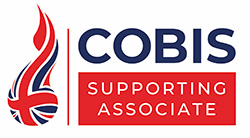Today marks the 25th Anniversary of World Mental Health Day and since 1992 the support available from charities has continued to provide safer environments and open conversations to discuss mental health without stigma.

Mental Health Statistics
Firstly, let’s consider some statistics…
According to the NHS, One in four people will be affected by a mental illness.
The scale of these figures suggests that, to most people, mental health is an issue close to home – with those not suffering from a mental illness themselves very likely to know somebody who does.
At the start of the year, YouGov polled 5,515 UK adults online on their experiences and opinions of mental health issues.
Two thirds of those who responded said that they knew of at least one person who suffered from a mental illness, while 16 per cent said they knew more than five people who did. So, what is being done?
With open and honest discussions about mental health being spear headed by campaigners across the UK and beyond, the stigma that is associated with mental health disorders is slowly being overcome and days like World Mental Health Day are supporting this.
Youngminds
Youngminds are the UK’s leading charity committed to improving the wellbeing and mental health of children and young people.
Their aim is to champion children and young people’s mental health and wellbeing across the UK. Driven by their experience Youngminds create change so that children and young people can cope with life’s adversities, find help when needed and succeed in life setting four goals:
- Foster innovation to meet the needs of vulnerable and excluded children and young people.
- Promote good mental health to more children and young people than ever before.
- Champion the voices of young people and parents to influence mental health policy and practice.
- Inspire excellence to achieve transformed, integrated services.
Heads Together
Heads Together is a mental health initiative spearheaded by The Duke and Duchess of Cambridge and Prince Harry, which combines a campaign to tackle stigma and change the conversation on mental health with fundraising for a series of innovative new mental health services.
With a focus on changing the narrative of mental health, the charity has promoted the power of conversation to show that #itsoktosay with influencers like Lady Gaga and Prince Harry speaking openly and honestly about their own ongoing journey with mental health and wellbeing.
Working alongside veterans, emergency services and homeless charities it identified that time and time again unresolved mental health problems lie at the heart of some of the greatest challenges.

Mental Health and Cyber-Bullying
A recent study by YoungMinds and The Children’s Society has indicated almost half of young people have experienced threatening, intimidating or nasty messages online. Of these, 14% said they had been a victim of cyber bullying. It comes as 80% of young people said social media companies should do more to tackle online abuse.
Many said their personal information had been shared publicly, they had been excluded from conversations or groups online or received persistent messages from someone after asking them to stop. The results of the inquiry are due to be published in a report early next year but you can read more about the original post here.
A panel will hear from young people, experts and social media companies on what can be done to tackle cyber bullying and promote good mental health. Around 40% of those polled said social media had a negative impact on how they feel about themselves. Almost 60% admitted having accounts when they were below the minimum age of 13.
Despite the findings, 60% of young people said social media had a positive effect on their friendships.
“Social media can bring many benefits and it’s so important that young people can enjoy using it without it damaging their self-esteem or mental health.”
Sarah Brennan, chief executive of YoungMinds, said: “Young people must feel safe online, and more needs to be done to prevent and respond to cyber bullying when it happens.”
Good mental health in young people
Good mental health begins in childhood, but it’s clear that many young people aren’t getting the help and support they need to stay mentally healthy.
With 50% of mental health problems established by age 14, it’s crucial that the foundations of good mental health are laid early. That means giving young people the skills and knowledge they need to support themselves – and each other – now and in the future.
School plays a central role in promoting and protecting the health and wellbeing of young people, and this includes mental health education and support. However, mental health doesn’t form part of the PHSE curriculum, meaning that it’s up to individual schools to decide what to teach about mental health.
There is currently a bill with the House of Lords in progress to make provision for state-maintained schools to promote the mental health and well-being of their pupils alongside academic attainment.
Local services are there to help you, you do not have to feel alone.
As part our contribution on World Mental Health Day, we have included a list of links that can provide information and support for students and parents for identifying, managing mental health issues including tips to help look after your own mental health.
https://www.headstogether.org.uk/changing-the-conversation/#campaign
https://youngminds.org.uk/find-help/
https://www.mentalhealth.org.uk/publications
https://www.mentalhealth.org.uk/publications/how-to-mental-health














